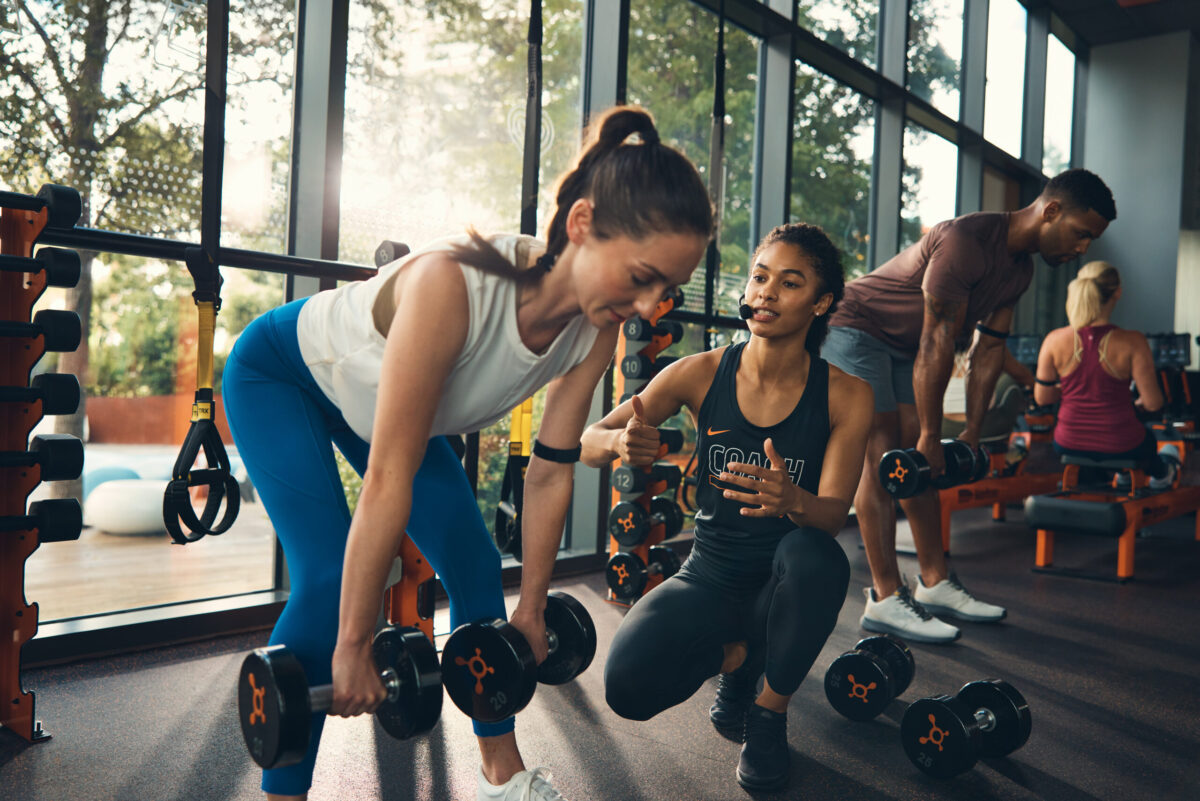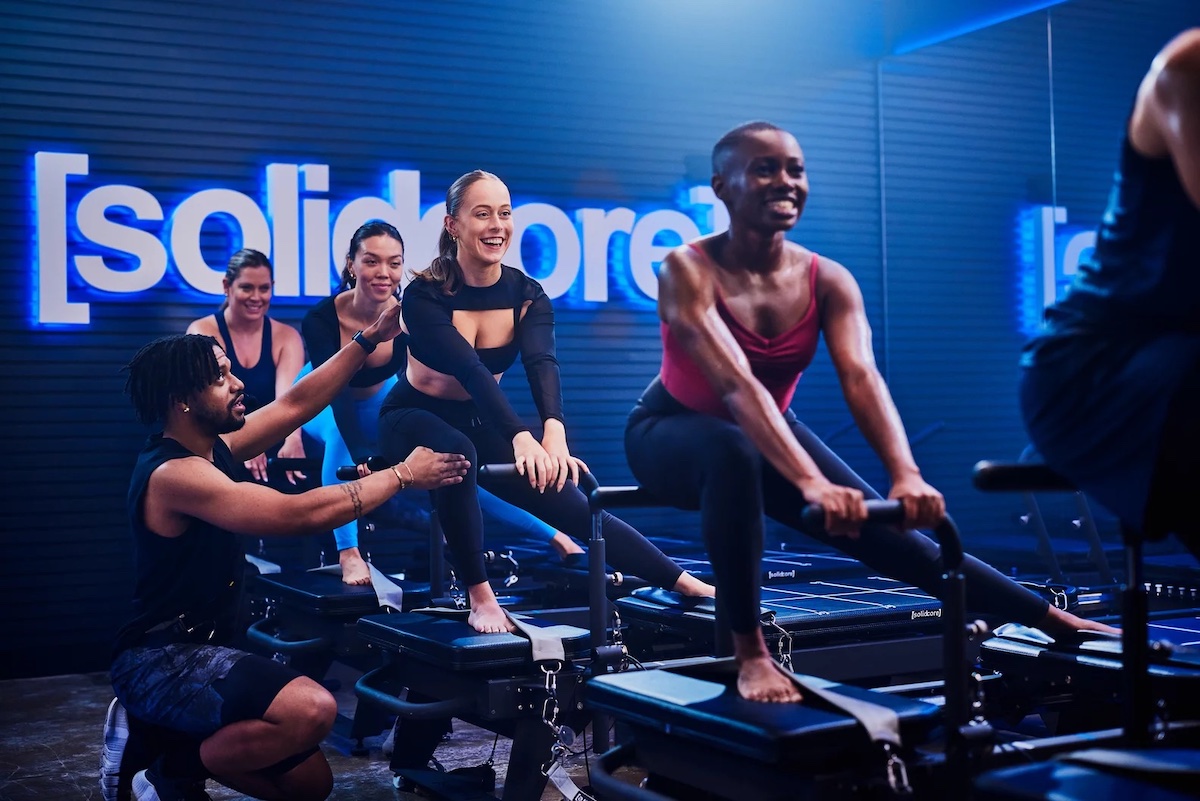Boutique fitness studios have cracked the code on functional strength training.
The latest: Orangetheory Fitness unveiled Strength 50, a 50-minute class dedicated to strength and functional resistance training using dumbbells, TRX suspension trainers, and more.
After three months in beta—and amassing a waitlist of 10K—it’ll replace OTF’s first foray into strength, Lift 45, on schedules around the globe, becoming part of the brand’s “holistic fitness regimen.”
Of note, the class incorporates Orangetheory’s signature heart rate technology and signups will be capped at 18 to ensure individualized instruction.
Why it matters: From sculpt to functional training, strength workouts have quickly become Americans’ favorite form of exercise, including 66% of Orangetheory members.
Beyond the aesthetic appeal, more people have discovered the link between weights and well-being.
- 30–60 minutes of strength training per week reduces all-cause mortality by 10–17%.
- Linking exercise to sleep, strength trainers gained an extra 40 min/night vs. 23 min/night who did aerobic exercise only.
- Resistance training (regardless of strength gains) diminishes depression and anxiety in adults while delaying the onset of Alzheimer’s.
Strength sells. To date, operators have struggled to offer safe and effective strength training at scale.
On one side, barbell clubs and CrossFit boxes focused on Olympic lifting appeal to a competitive, athletic base but are often intimidating to the masses.
On the other, even as demand for 1:1 personal training grows, its cost and lack of community create barriers, even with advances in tech.
Looking ahead: After some trial and error, boutique studios are perfecting socially oriented group strength classes. And while Australia-born brands like F45, Fitstop, and BFT have a head start, concepts that bridge modalities—like Barry’s with cardio, CorePower with yoga, or MADabolic with recovery—appeal to consumers who see strength as a piece of a larger puzzle.
 Orangetheory Fitness
Orangetheory Fitness


